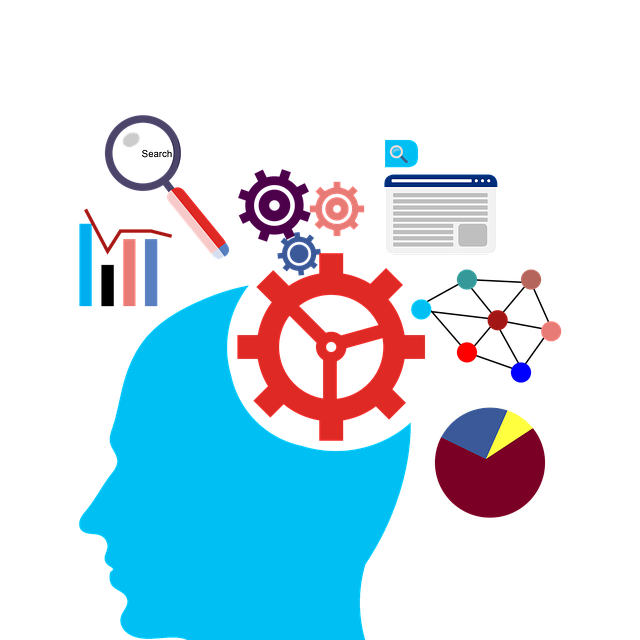AI food prep coaching assistants are revolutionizing nutrition by analyzing dietary patterns, preferences, and sensitivities to create personalized meal plans that avoid allergens while maintaining balance. These apps offer step-by-step guidance, recipes, and education on nutritional value, empowering users to make informed dietary choices and adopt healthier lifestyles. By leveraging algorithms and user data, they identify food sensitivities, suggest alternatives, and track progress over time, promoting healthier eating habits while accommodating individual triggers and cultural preferences. However, challenges include data privacy, algorithm accuracy, and inclusivity.
In today’s digital age, smart nutrition apps are transforming the way we approach personal dietary needs. Leveraging artificial intelligence (AI) food prep coaching assistants, these innovative tools analyze food sensitivities and tailor nutritional plans accordingly. By understanding individual preferences and health requirements, AI coaches offer personalized meal suggestions, ensuring optimal health and well-being. This article explores how these assistants identify food sensitivities, the benefits they bring, and the challenges they face in catering to diverse dietary needs.
- Understanding AI Food Prep Coaching Assistants
- How Smart Nutrition Apps Identify Food Sensitivities
- Benefits and Challenges of Using AI for Personalized Dietary Needs
Understanding AI Food Prep Coaching Assistants

AI food prep coaching assistants are revolutionizing the way we approach nutrition and healthy eating. These innovative tools leverage advanced algorithms to analyze an individual’s dietary patterns, preferences, and, most importantly, food sensitivities. By understanding what foods may trigger adverse reactions or discomfort, these assistants can tailor-make meal plans that avoid potential allergens while ensuring a balanced diet.
In the realm of AI coaching, these assistants provide step-by-step guidance on preparing nutritious meals. They offer recipes, suggest alternatives for common allergens, and even teach users about the nutritional value of various ingredients. This personalized approach not only promotes healthier lifestyles but also empowers individuals to take control of their dietary choices by educating them about the science behind food and its impact on overall well-being.
How Smart Nutrition Apps Identify Food Sensitivities

Smart nutrition apps leverage advanced algorithms and AI food prep coaching assistants to identify food sensitivities. These apps analyze user dietary data, including past meals, symptoms reported after eating, and even genetic predispositions. By combining this information with machine learning techniques, the apps can pinpoint specific foods or ingredients that cause discomfort or adverse reactions in individuals.
AI food prep coaching assistants within these apps offer personalized recommendations by suggesting alternative ingredients, modifying recipes, and providing tailored meal plans to accommodate identified sensitivities. They also educate users about common triggers and help them track their progress over time. This data-driven approach ensures that users receive customized guidance, promoting healthier eating habits while avoiding foods that cause sensitivity issues.
Benefits and Challenges of Using AI for Personalized Dietary Needs

The integration of Artificial Intelligence (AI) in nutrition and diet planning has opened new avenues for personalized healthcare, offering numerous benefits to users seeking tailored dietary solutions. AI food prep coaching assistants can analyze vast amounts of data related to an individual’s eating habits, health goals, and potential food sensitivities or allergies. By learning from this data, these apps provide customized meal plans and recipes, ensuring users receive guidance that aligns with their unique needs. This level of personalization is particularly advantageous for individuals with specific dietary requirements or those aiming to manage chronic conditions through nutrition.
Despite the advantages, challenges exist in implementing AI-driven nutritional coaching. Data privacy and security are paramount concerns, as these apps handle sensitive health information. Ensuring the accuracy and reliability of AI algorithms is also critical; misinterpretation of data could lead to inappropriate dietary recommendations. Additionally, individual preferences and cultural diversity in food choices can be complex for AI systems to navigate, requiring continuous learning and adaptation to provide truly inclusive and effective coaching.
Smart nutrition apps, powered by AI food prep coaching assistants, offer a promising way to tailor dietary recommendations based on individual needs. By analyzing food sensitivities and personal preferences, these applications can significantly enhance personalized nutrition plans. While challenges remain, such as data privacy concerns and the need for more diverse datasets, the benefits of AI in this domain are clear: precise nutritional guidance, time-saving meal planning, and improved overall health outcomes. As research progresses, we can expect AI food prep assistants to become increasingly sophisticated tools in managing dietary requirements.
